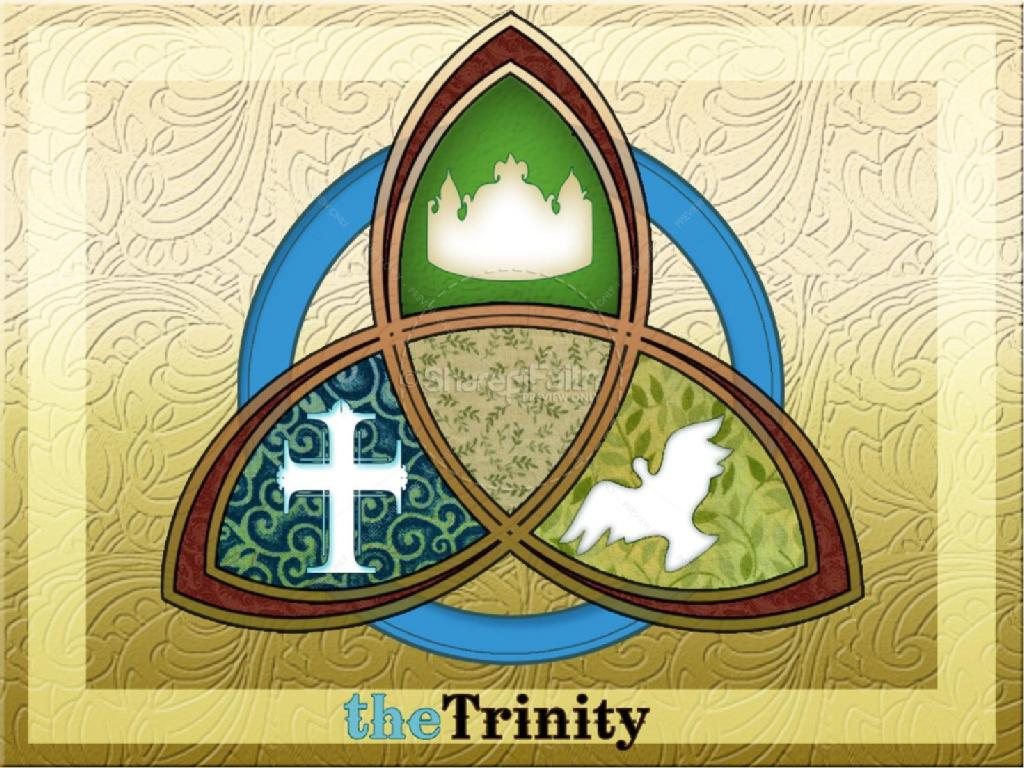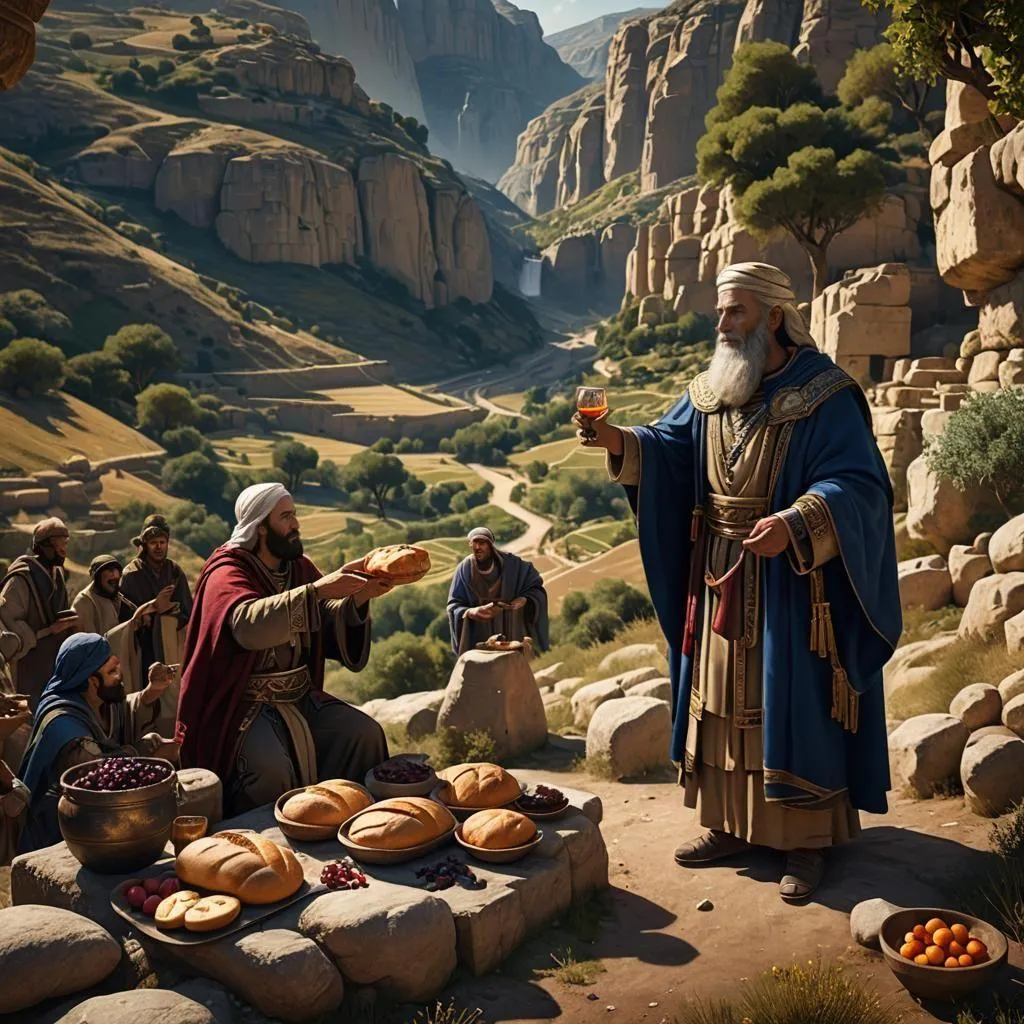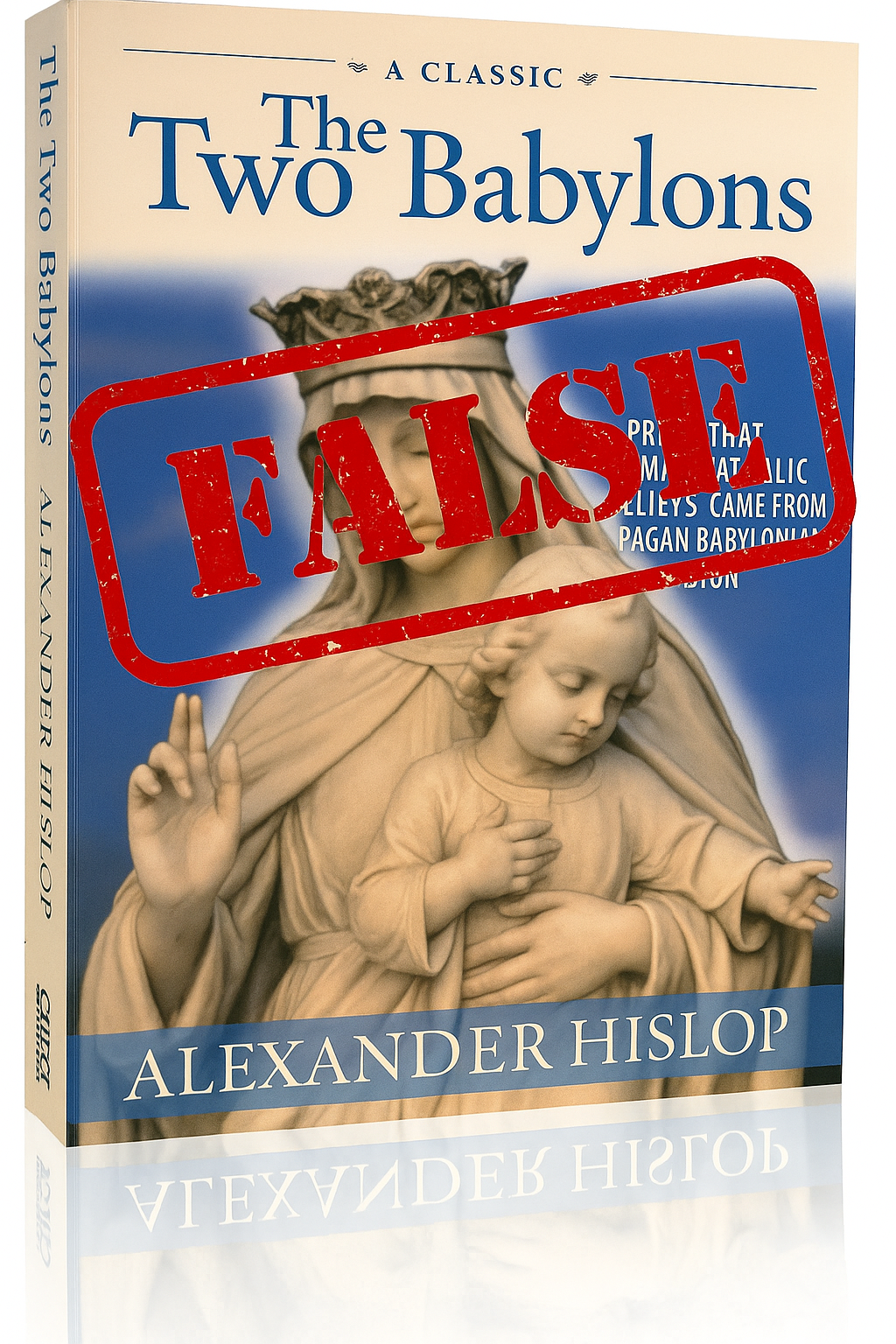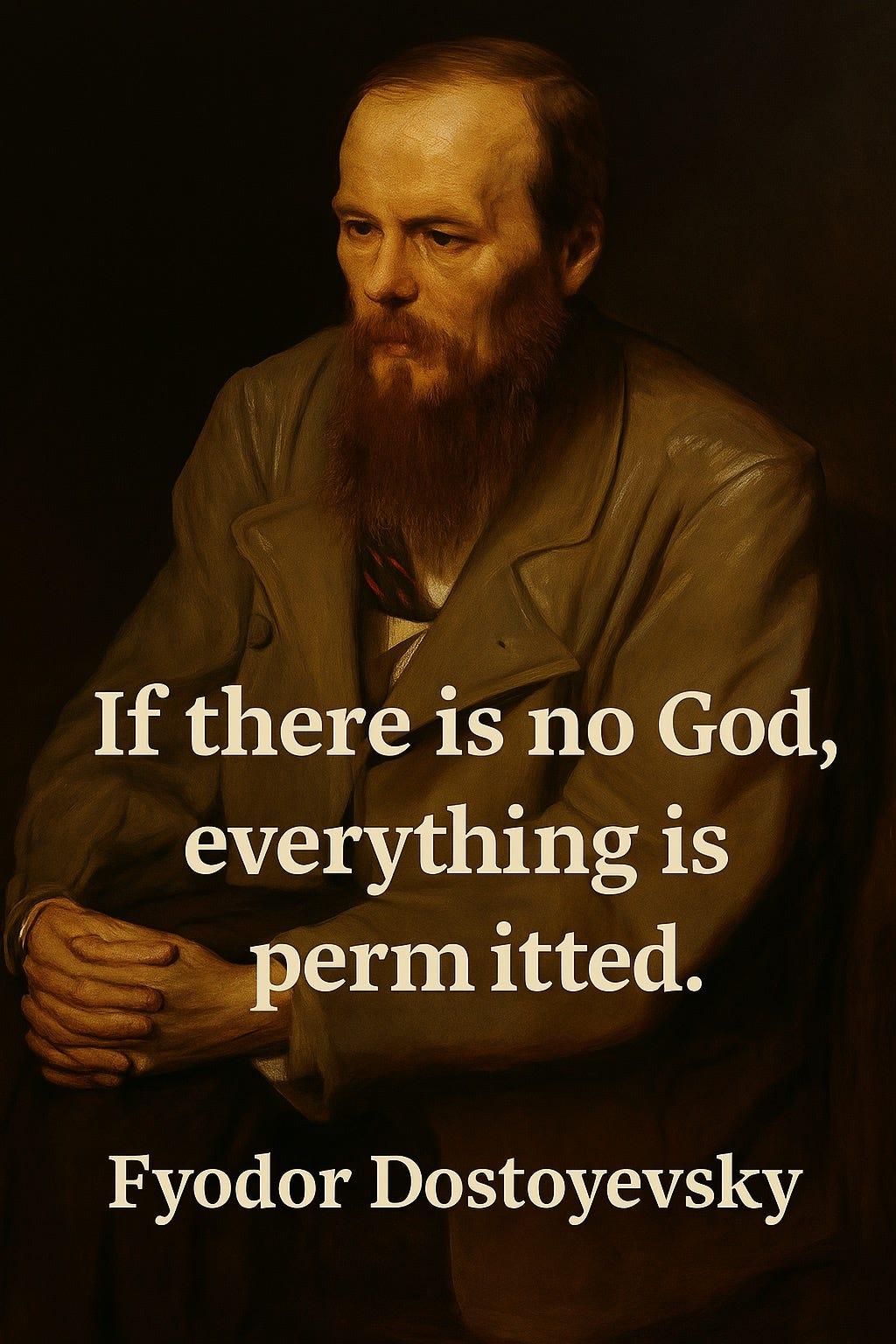Fasting: A spiritual and physical discipline
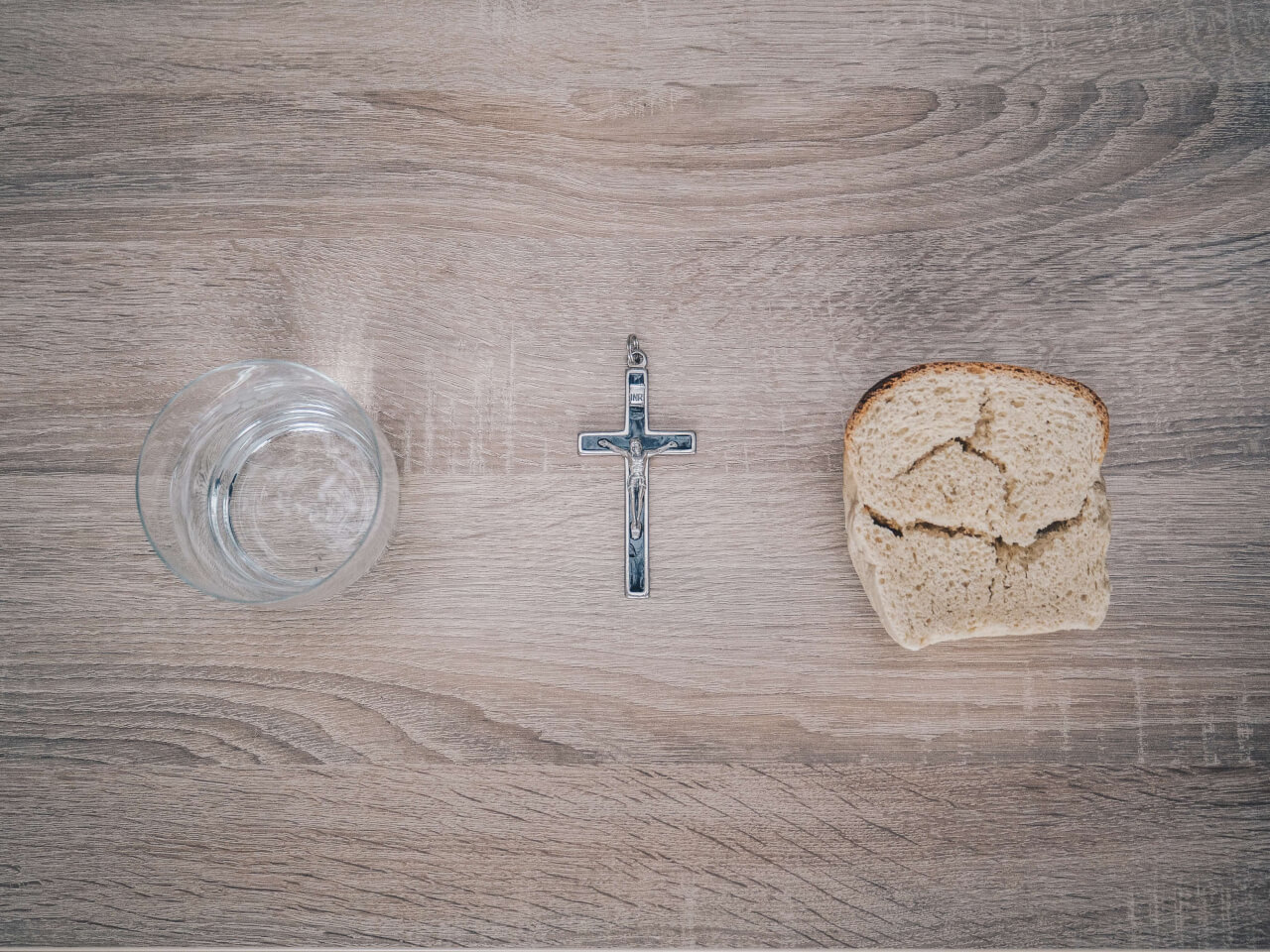
The topic of fasting often comes up in online discussion groups that I'm a part of, more often in Protestant circles where the practice is more often sidelined in low churches. So let's take a look at the practice of fasting from a practical and historical view, as it seems to be a spiritual discipline which has been pushed aside in many churches today, with prayer, worship and bible reading taking more precedence in a Christian's life instead (not that those are bad things to do!).
Why fast?
There are many reasons to fast, and recent studies have shown a lot of health benefits that can be derived from fasting. But on the spiritual side of life, there are also many benefits, one of the main ones being self-control.
- Fasting is participation in the Gospel. It is the ‘death’ of the flesh through denial, so that we can enjoy the resurrection of Christ in the spirit (Rom 8:13, Col 3:5).
- It’s pure discipline and obedience (Jesus did say when not if – Matthew 6:16-18; Mark 2:20).
- It’s putting to death the body – killing the flesh in order to live by the Spirit. (Gal 5:17)
- It’s training you in self-control, discipline and willpower; growing and nurturing the fruit of the Spirit (Galatians 5:23; 2 Timothy 1:7; 1 Peter 4:7; 1 Peter 5:8).
- For healing and deliverance of others (Mark 9:29; Matthew 17:21).
- To prepare to hear from God via visions and revelation (Acts 10:30).
- For preparation for Church leadership (Acts 13:2-3; Acts 14:23)
- To not be ruled by your desires and cravings – impulse control (1 Corinthians 7:5).
- To focus on God and not ourselves, in prayer and worship (Luke 2:36-38).
- To be in control of your body and to make your desires subject to you, not vice versa (1 Corinthians 7:5).
- For self-denial to overcome temptations and learn discipline (1 Peter 5:8).
- For repentance.
- For prayers for your enemies/persecutors and forgiveness.
(For a more in-depth examination of early Christian thought on fasting and the reasons for doing so, see here: Fasting through patristic era.)
Some Fasting Guidelines
If you want to fast in the same way as the Early Church and keep with historical Christianity, fast every day until sunset (or 3pm) during your fasting period. Historically also, the Church has always had a weekly partial fast on Wednesdays and Fridays alongside other times (such as Lent).
Generally, you can drink what you like (except soup, as it’s still a food), though there are different types of fasts the Church has kept throughout the year (the Catholic and Eastern Orthodox churches still do this) which have different restrictions, like no alcohol and oils etc., but plenty of water is ideal in any case.
The first five days or so will be the hardest if you observe the strict fast for a longer period of time. Persevere past this as it does get easier! I've always been told to drink a large glass of milk if you experience headaches, I'm not sure why this helps but it does seem to!
It’s not a sin to tell people you are fasting! The warnings of Jesus in Matt 6:16 about not looking dismal and sad, is like the warnings against public prayer – it’s all down to motivation. If you do it for the praise of others, or to look “super spiritual” then you have gained an earthly reward and lost a heavenly one. If people notice and ask, tell them. It may be an opportunity to witness about your faith, as it’s fairly unusual for people to hear of these days; just don’t go around advertising it or boasting, that’s all!
Remember what Jesus says in Matthew 6:16-18 – go about your days as normal!
As with the historical tradition: don’t fast on Sundays – this is because it is a day of celebration in remembrance of the resurrection; a “mini-feast day” as it’s known! Also, this is why and how during Lent the forty days “fits” from Ash Wednesday to Easter Saturday, by not counting the Sundays of Lent, otherwise it would be 46 days.
Types of Fasts
There’s a whole variety of different fasts which the Church has observed over the years (see this calendar as an example of Greek Orthodox fasting)!
But here’s a breakdown of some typical fasts which anyone in good health should be able to keep which I’ve taken from the various teachings found in the Church Fathers letters on fasting and Lent:
- Weekly: A fast observed every Wednesday and Friday until sundown in the Traditional practice (see below) or a bread and water only diet. Wednesdays and Fridays were chosen for two reasons:
-
Initially, to be on opposite days to the Pharisees (as this practise began during the start of the Church and is recorded as such in the Didache 8:1 and the Apostolic Constitutions, VII:XXIII); and,
-
because Wednesday was when Jesus was betrayed, and Friday because of the crucifixion and Passion.
- Traditional: basically a vegan-like diet; no meat, fish, dairy or oils/dressings. No alcohol either, just water. This is the same type which was done weekly on Wed and Fri too, and was based on Dan 10:3 –
“I had eaten no rich food, no meat or wine had entered my mouth, and I had not anointed myself at all, for the full three weeks.”
- “Loose”: No food until sundown/next day, drink anything during fast hours (except soup still). This has typically been the teaching of how to fast in many Protestant/Pentecostal/Evangelical/Non-Denom churches that I’ve been in.
- Strict: No food or drink except water all day (except maybe milk for headaches), or until the fast ends. This type was historically observed only on Saturdays, although it varies amongst Christian traditions (as do all these ‘types’).
Observe any as you are able and healthy to do so. As we fast, we should remember the true and better fast which God prefers and spoke of through the prophet Isaiah:
Isaiah 58:6-9
Is not this the fast that I choose: to loose the bonds of injustice, to undo the thongs of the yoke, to let the oppressed go free, and to break every yoke?
Verse 10 onward tells us that by living holy and right before the LORD as our spiritual fast, He shall guard us and give us good health, and shall answer us.
What to do during your fast?
Replace mealtimes and hunger pangs with prayer and/or Bible study. Read a chapter or two of a Gospel each meal time and work your way through the whole New Testament, just as an example suggestion.
Pray! “But I don’t have enough things/people to pray for!” you may say—make a list and routine of people and/or issues you care about and pray for these each day and see where the Holy Spirit leads you. Pray the Lord’s Prayer.
Pray for protection. You will no doubt experience some sort of spiritual attack/oppression and strong temptation. Keep your guard up and mind focused on God. Put on the armour of God (Eph 6:11). Remember, even Jesus didn’t escape this attack from the devil during His long fast (Matthew 4:1-11)!
Learn to pray contemplative prayer to help keep your mind stilled and focused purely on God. Ps 46:10 – “Be still, and know that I am God!”
This is an ancient type of Christian meditation which is the complete opposite to secular and Eastern religious meditation which aims to empty your mind. Christian meditation is about filling your mind with thoughts and reflections on and about God and Scripture – to really focus on a verse or passage of Scripture and to pray and wait on God in silence until you become aware of His presence and His voice (in whatever form that takes, ie. visions, pictures, words etc.), and are filled with the Spirit who can reveal the deeper things of God and Scripture (1 Corinthians 2:10).
You can read more on this type of prayer, and it’s Scriptural basis, in my other article: What is Contemplative Prayer?.
Pray the ancient “Jesus Prayer”: “Lord Jesus Christ, Son of God, have mercy on me, a sinner.”
When words fail you and your mind is busy and cluttered, I have found this to be most helpful in stilling and focusing the mind completely on God. This practise dates back to around the 4th century when monks endeavoured to do as Paul instructed when he wrote to “pray without ceasing” (1 Thessalonians 5:16-18).
The prayer is simple and easy to remember, with the point that you can pray it anywhere, anytime when you want to focus; or during contemplative prayer when you have time to really focus on each word and phrase and its meaning. It is said that this prayer contains the essence of the Gospel, and so praying it continually will help you to remember and realise the great truth that the Son of God came down from glory to be a man and die for us while we were still sinners.
Some Encouragement on Fasting
Fasting can be hard! It’s not easy – there’s no denying that, and it’s probably why it’s fell out of fashion and practise in the modern church as it goes so much against our comfortable lifestyles, it’s almost painful! But that’s also precisely why we should fast! It is so totally counter-cultural that we cannot help but be refocused away from this world and all its distractions, and back onto God and to spiritual things.
Read through the Gospels and we’ll see Jesus stating that “When you fast…” (Matthew 6:17) – not if; and even throughout the book of Acts we can see that the early church fasted regular and often, especially when they sought direction from God.
If it were not for the church fasting and praying in Acts 13:1-4, they may not have heard from the Holy Spirit about sending Paul out on his first missionary journey, and if he had not done that, the faith may never have spread as far and fast as it did, nor would we have the majority of our New Testament! Fasting is a vital church discipline, I believe.
Similar, history changing events, also happened from prayer and fasting in 2 Chronicles 20, and the post-Acts early church. Here’s a quick quote from Tertullian (c.198) and Irenaeus (c.180), respectively, on the power of prayer and fasting:
“When, indeed, have droughts not been put away by our kneeling and our fastings?”
“When the entire church in that particular locality entreated God with much fasting and prayer, the spirit of the dead man has returned, and he has been bestowed in answer to the prayers of the saints.”
The general belief about fasting, which we can see in the early writings, also shows that the Church taught not only abstaining from food, but any evil deed, word or thought (Clement of Alexandria, c.195), and that during a fast, our prayers “ascend with more acceptability” (Tertullian c.198).
Also, even here in Britain in 1756! John Wesley recounts a time when the King of England called for a time of fasting and prayer when France threatened to invade. He wrote in his journal:
“The fast day was a glorious day, such as London has scarce seen since the Restoration. Every church in the city was more than full, and a solemn seriousness sat on every face. Surely God heareth prayer, and there will yet be a lengthening of our tranquillity.”
He later noted that following this, the invasion was averted! More accounts of national prayer and fasting in crisis times can be read here.
In one of the earliest post-New Testament books we have still in existence, called The Shepherd, the writer, Hermas, is fasting and praying and gives advice to other Christians on the practice. As well as mentioning the 'lifestyle fast' of Isa. 58, he says:
“Be on your guard against every evil word, and every evil desire, and purify your heart from the vanities of this world. If you guard against these things, your fasting will be perfect.”
Our fasting is as much about living right and conforming ourselves to the mind of Christ, as it is about avoiding certain foods for a time. As Augustine wrote, there are three main things we ought to do in order to live a righteous life, which he deduced from Jesus’ teachings in the Gospels: fasting, alms and prayers.
“Now in the fasting [Jesus] indicates the entire subjugation of the body; in the alms, all kindness of will and deed, either by giving or forgiving; and in prayers He implies all the rules of a holy desire.” –Augustine, Treatise on Man’s Perfection in Righteousness, ch.18.
Closing prayer
May our lives be a spiritual fast of Isaiah 58 and our bodies be a spiritual sacrifice in worship to God, as of Romans 12:1 and 1 Peter 2:5-6, as we humble ourselves and learn humility and self-control through physical fasting; putting to death the flesh so that we may be made alive in the Spirit!
Amen.
Further Reading:
I recently published a book called 40 Days with the Fathers, which is a daily reading plan and an introduction to the Early Church Fathers that is spread across forty days, originally written as a Lenten reading plan. You can get a copy by clicking here.
- http://steadfastlutherans.org/2014/03/redeeming-holy-days-from-pagan-lies-ash-wednesday-and-lent-2/
- http://www.catholiceducation.org/en/culture/catholic-contributions/history-of-lent.html
- http://www.ccel.org/ccel/schaff/npnf204.xxv.iii.iii.iii.html
- http://www.goarch.org/chapel/calendar/
- http://www.infoplease.com/spot/easter1.html
- http://www.thedidache.com
- http://www.newadvent.org/fathers/07157.htm
- https://www.buzzsprout.com/3196/52849-fasting-for-divine-intervention-fasting-edition-45
- http://sacred-texts.com/chr/ecf/105/1050354.htm
- https://bible.org/seriespage/chapter-3-fasting-through-patristic-era
Lent Reading/Devotional Plan:
- My Book series: 40 Days with the Fathers
- http://www.churchyear.net/lentfathers.html
- http://www.churchyear.net/lentfatherslite.html
- Full texts: http://www.churchyear.net/lentfatherscomplete.pdf
Leave a comment Like Back to Top Seen 5.4K times Liked 1 times
Enjoying this content?
Support my work by becoming a patron on Patreon!
By joining, you help fund the time, research, and effort that goes into creating this content — and you’ll also get access to exclusive perks and updates.
Even a small amount per month makes a real difference. Thank you for your support!
Subscribe to Updates
If you enjoyed this, why not subscribe to free email updates and join over 853 subscribers today!
My new book is out now! Order today wherever you get books
Recent Posts
Luke J. Wilson | 5 days ago | Islam
You are not alone. Around the world, many Muslims — people who already believe in one God, pray, and seek to live righteously — are drawn to know more about Jesus (ʿĪsā in Arabic). Some have heard He is more than a prophet. Some have sensed His presence in a dream or vision. And some simply long to know God more deeply, personally, and truly. So what does it mean to become a Christian? And how can you take that step? This guide is for you. 1. What Christians Believe About God and Jesus ➤ One God, Eternal and Good Christians believe in one God — the same Creator known to Abraham, Moses, and the prophets. But we also believe God is more personal and relational than many realise. In His love, He has revealed Himself as Father, Son (Jesus), and Holy Spirit — not three gods, but one God in three persons. ➤ Jesus Is More Than a Prophet Muslims honour Jesus as a great prophet, born of the virgin Mary. Christians also affirm this — but go further. The Bible teaches that Jesus is the Word of God (Kalimat Allāh), who became flesh to live among us. He performed miracles, healed the sick, raised the dead — and lived without sin.Jesus came not just to teach but to save — to bring us back to God by bearing our sins and rising again in victory over death. 2. Why Do We Need Saving? ➤ The Problem: Sin All people — no matter their religion — struggle with sin. We lie, get angry, feel jealous, act selfishly, or fail to love God fully. The Bible says: “All have sinned and fall short of the glory of God.” (Romans 3:23) Sin separates us from God. And no matter how many good deeds we do, we can never make ourselves perfect or holy before Him. ➤ The Solution: Jesus Because God loves us, He did not leave us in our sin. He sent Jesus, His eternal Word, to live as one of us. Jesus died willingly, offering His life as a sacrifice for our sins, then rose again on the third day. “But God proves his love for us in that while we still were sinners Christ died for us.” (Romans 5:8) 3. How Do I Become a Christian? Becoming a Christian is not about joining a Western religion. It’s about entering a relationship with God through faith in Jesus Christ. Here is what the Bible says: ✝️ 1. Believe in Jesus Believe that Jesus is the Son of God, that He died for your sins, and that He rose again. “If you confess with your lips that Jesus is Lord and believe in your heart that God raised him from the dead, you will be saved.” (Romans 10:9) 💔 2. Repent of Your Sins Turn away from sin and ask God to forgive you. This is called repentance. It means being truly sorry and choosing a new way. “Repent therefore, and turn to God so that your sins may be wiped out.” (Acts 3:19) 💧 3. Be Baptised Jesus commands His followers to be baptised in water as a sign of their new life. Baptism represents washing away your old life and rising into a new one with Jesus. “Repent and be baptised every one of you in the name of Jesus Christ so that your sins may be forgiven.” (Acts 2:38) 🕊️ 4. Receive the Holy Spirit When you believe in Jesus, God gives you the Holy Spirit to live within you, guiding you, comforting you, and helping you follow His will. “You received the Spirit of adoption, by whom we cry, ‘Abba! Father!’” (Romans 8:15) 🧎 5. Begin a New Life As a Christian, you are born again — spiritually renewed. You begin to grow in faith, love, and holiness. You read the Bible, pray, fast, and gather with other believers. Your life is no longer your own; you now live for God. 4. What Does a Christian Life Look Like? Jesus said: “If anyone wants to become my followers, let them deny themselves and take up their cross and follow me.” (Matthew 16:24) This means: Loving God with all your heart Loving your neighbour — even your enemies Forgiving others ...
Luke J. Wilson | 05th May 2025 | Politics
When we think about David and Saul, we often focus on David’s rise to kingship or his battle with Goliath. But hidden within that story is a deep lesson for today’s generation about leadership, resistance, and the power of revolutionary love. At a recent youth training event (thanks to South West Youth Ministries), I was asked how I would present the story of David and Saul to a Christian teenage youth group. My mind turned to the politics of their relationship, and how David accepted Saul’s leadership, even when Saul had gone badly astray. David recognised that Saul was still God’s anointed king — placed there by God Himself — and that it was not David’s place to violently remove him. Gen-Z are more politically aware and engaged than previous generations, and are growing up in a world where politics, leadership, and social issues seem impossible to escape. We live in a world where political leaders — whether Trump, Putin, Starmer, or others — are often seen as examples of failed leadership. It’s easy to slip into bitterness, cynicism, or violent rhetoric. These kids are immersed in a culture of activism and outrage. As Christians, we’re called to care deeply about truth and justice and approach leadership differently from the world around us (Hosea 6:6; Isaiah 1:17; Micah 6:8). The story of David and Saul offers pertinent lessons for our modern lives. Respect Without Endorsement David’s respect for Saul was not blind loyalty. He did not agree with Saul’s actions, nor did he ignore Saul’s evil. David fled from Saul’s violence; he challenged Saul’s paranoia; he even cut the corner of Saul’s robe to prove he had the chance to kill him but chose not to. Yet throughout, David refused to take matters into his own hands by force. Why? Because David understood that even flawed authority ultimately rested in God’s hands, he trusted that God would remove Saul at the right time. This is echoed later in the New Testament when Paul writes in Romans 13 that “there is no authority except from God, and those authorities that exist have been instituted by God”, something even Jesus reminded Pilate of during his trial (John 19:10–11). In other words, even flawed leadership can be part of God’s bigger plan, whether for blessing or discipline. Even when leaders go bad, our call as believers is to maintain integrity, respect the position, and resist evil through righteousness — not rebellion. David and Saul: A Lesson in Respect and Restraint Saul was Israel’s first king — anointed by God but later corrupted by pride, fear, and violence. David, chosen to succeed him, spent years running for his life from Saul’s jealous rage. One day, David found Saul alone and vulnerable in a cave. His men urged him to strike Saul down and end the conflict. But David refused: “I will not raise my hand against my lord; for he is the Lord’s anointed.” (1 Samuel 24:10) Instead of killing Saul, David cut off a piece of his robe to prove he could have harmed him, but didn’t. In doing so, he demonstrated a real form of nonviolent resistance. He stood firm against Saul’s injustice without resorting to injustice himself, and acted in a way that could try to humble Saul instead. Peacemaking Is Not Passivity There is a modern misconception that peacemaking means doing nothing and just letting injustice roll all over us. But true biblical peacemaking is not passive; it actively resists evil without becoming evil. Interestingly, David’s actions toward Saul also foreshadow the type of nonviolent resistance Jesus later taught. When Jesus commanded His followers to turn the other cheek, go the extra mile, and love their enemies, he was not calling for passive submission but offering what scholar Walter Wink describes as a “third way” — a bold, peaceful form of resistance that uses what he calls “moral jiu-jitsu” to expose injustice without resorting to violenc...
Luke J. Wilson | 21st April 2025 | Easter
Over the years, I’ve encountered many Christians who’ve quoted from Alexander Hislop’s The Two Babylons as if it were a solid historical resource. The book claims that the Roman Catholic Church is not truly Christian but rather a continuation of ancient Babylonian religion. It’s self-assured and sweeping, and for many people, it seems to explain everything, from Marian devotion to Lent and Easter, to Christmas, as rooted in paganism. But is it accurate? In short: no, it really isn’t. Hislop’s work is a classic example of 19th-century pseudohistory — a polemical piece, written to prove a point, not to explore any historical truth. Flawed Methods and Wild Claims Hislop argues that most Catholic practices — from the Mass and clerical robes to festivals like Christmas and Easter — were somehow borrowed from Babylonian religion. The problem being that Hislop doesn’t rely on primary sources or credible historical data. Instead, he draws connections based on word similarities (like Easter and Ishtar) or visual resemblances (like Mary and child compared with mother-goddess statues from ancient cultures). But phonetic resemblance isn’t evidence, and neither is visual similarity. For example, if I say “sun” and “son” in English, they may sound alike, but they aren’t the same thing. That’s the level of reasoning at work in much of The Two Babylons. Hislop often lumps together completely different ancient figures — Isis, Semiramis, Ishtar, Aphrodite — as if they were all just variations of the same deity. He then tries to say Mary is just the Christian version of this pagan goddess figure. But there’s no credible evidence for that at all. Mary is understood through the lens of Scripture and Christian theology, not through pagan myth. The earliest depictions of Mary and the Christ-child date back to the second century and do not resemble any of the pagan idols. But, again, the common accusations are based on superficial similarities of a woman nursing a child. That’s going to look the same no matter who or what does that! Oldest depiction of Mary. Dura-Europos Church, Syria, 2nd century What About Lent and Tammuz? One of Hislop’s more popular claims is that Lent comes from a Babylonian mourning ritual for the god Tammuz, mentioned in Ezekiel 8:14. He argues that early Christians borrowed the 40-day mourning period and just rebranded it. But this doesn’t line up with the evidence. Lent developed as a time of fasting and repentance leading up to Easter — especially for new believers preparing for baptism. The number forty comes from Scripture: Jesus’ forty days in the wilderness, Moses’ fast on Sinai, and Elijah’s journey to Horeb. Church Fathers like Irenaeus and Athanasius saw it as a time for self-denial and spiritual renewal — not mourning a pagan god. Yes, there are pagan festivals that involve seasonal death and rebirth stories. But similarity does not mean origin. If that logic held, then even Jesus’ resurrection would be suspect because pagan cultures also told resurrection-like stories. Yet the gospel stands apart — not because of myth but because of history and revelation. Why Hislop’s Work Persists Even though The Two Babylons is poor scholarship, it’s unfortunately had a long shelf life. That’s partly because it appeals to a certain kind of suspicion. If you’re already sceptical about the Catholic Church, Hislop offers an easy explanation: “It’s all pagan!”. But history isn’t ever that simple. And theology — especially the theology handed down through the ages by the faithful— isn’t built on conspiracy and apparent obscure connections, but on Christ and the truth of the Scriptures. Interestingly, even Ralph Woodrow, a minister who once wrote a book defending Hislop’s ideas, later retracted his views after digging deeper into the evidence. He eventually wrote a book called The Babylon Connect...
Darwin to Jesus | 16th April 2025 | Atheism
Guest post by Darwin to Jesus Dostoevsky famously said, “If there is no God, then everything is permitted.” For years, as an atheist, I couldn’t understand what he meant, but now I do… Here’s a simple analogy that shows why only theism can make sense of morality: Imagine you just got hired at a company. You show up, set up your desk, and decide to use two large monitors. No big deal, right? But then some random guy walks up to you and says: “Hey, you’re not allowed to do that.” You ask, “What do you mean?” They say, “You’re not permitted* to use monitors that big.” In this situation, the correct response would be: “Says who?” We’ll now explore the different kinds of answers you might hear — each one representing a popular moral theory without God — and why none of them actually work. Subjective Morality The random guy says, “Well, I personally just happen to not like big monitors. I find them annoying.” Notice that’s not a reason for you to change your setup. Their personal preferences don’t impose obligations on you. This is what subjective morality looks like. It reduces morality to private taste. If this were the answer, you’d be correct to ignore this person and get back to work — big monitors are still permitted. Cultural Relativism Instead, they say, “It’s not just me — most people here don’t use big monitors. It’s not our culture.” That’s cultural relativism: right and wrong are just social customs, what is normal behavior. But notice customs aren’t obligations. If the culture were different, the moral rule would be different, which means it isn’t really moral at all. You might not fit in. You might not be liked. But you’re still permitted to use big monitors. Emotivism Here after being asked “says who?” the person just blurts out, “Boo, big monitors!” You reply, “Hurrah, big monitors!” That’s the entire conversation. This is emotivism. On this moral theory when we talk about right and wrong we’re actually just expressing our personal feelings towards actions, I boo rape, you hurrah rape. But shouting “boo!” at someone doesn’t create real obligations. You’re still permitted to use large monitors. Utilitarianism Here, the person says, “Your big monitors lower the overall productivity of the office. You’re not permitted to use them because they lead to worse consequences.” This is utilitarianism: morality is based on producing the greatest happiness for the greatest number. But even if that’s true — so what? Who says you’re obligated to maximize group productivity? And what if your monitors actually help you work better? Utilitarianism might tell you what leads to better outcomes, but it doesn’t tell you why you’re morally obligated to follow that path — especially if it comes at your own expense. You’re still permitted to use large monitors. Virtue Ethics Here they say, “Using big monitors just doesn’t reflect the virtues we admire here — simplicity, humility, restraint.” This is virtue ethics. Morality is about becoming the right kind of person. But who defines those virtues? And why are you obligated to follow them? What if your idea of a virtuous worker includes productivity and confidence? Without a transcendent standard, virtues are just cultural preferences dressed up in moral language. If you don’t care about virtue or their arbitrary standards, then you have no obligation. You’re still permitted to use large monitors. Atheist Moral Realism But what if they say, “Listen, there’s a rule. It’s always been here. It says you can’t use monitors that large.” You ask, “Who made the rule?” They say, “No one.” You ask, “Who owns this company?” They say, “No one owns it. The company just exists.” You look around and ask, “Where is the rule?” They say, “You won’t find it w...





